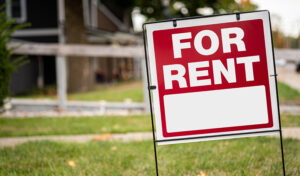Homeowners should familiarize themselves with the most common HOA violations. In doing so, they can take the proper precautions to avoid committing these violations, thereby protecting themselves from potential penalties. It also saves their HOA the headache and contributes to a better community.
Common HOA Violations That Homeowners Commit
Homeowners associations are known for their many rules and regulations. When a resident breaks a rule, it results in a violation, which comes with certain penalties. These rules, though, can vary from one community to another. That said, some violations happen more often than others.
Here are the most common HOA rules violations that homeowners should know about.
1. Architectural Changes
Perhaps one of the most common HOA violations is a violation of architectural standards. An HOA typically has architectural guidelines in place to maintain the aesthetics of a community. For example, an HOA may prohibit owners from painting their homes a certain color or require owners to stick to a specific design scheme.
Additionally, many associations require owners to seek permission from the HOA before making any architectural modifications or improvements. Even something as trivial as changing a door could require approval from the HOA. If an owner breaks the architectural guidelines or doesn’t seek approval first, the HOA may force them to reverse the unauthorized changes at their own expense.
2. Landscaping
Most associations, especially single-family communities, have landscaping rules that owners must follow. These can range from requiring owners to trim their lawns regularly to having a pre-approved plant palette. As with architectural rules, landscaping rules aim to maintain a certain aesthetic in the community. They also ensure that homes look clean and well-kept.
3. Exterior Storage
Sometimes, a homeowner will want to build an external shed or a detached garage. Exterior storage, though, is likely something that an HOA regulates, too. Before owners commence a shed project, they should check their HOA rules. Many HOAs prohibit exterior storage altogether, while others have design or placement requirements.
 4. Rentals
4. Rentals
One of the top HOA violations across the board involves rentals. Many associations prohibit or restrict rentals in the community.
Such a policy aims to maintain the quality of life within the neighborhood. After all, rentals, especially short-term rentals, can interfere with a community’s security and perceived luxury. Additionally, it’s hard to run an HOA that doesn’t primarily consist of resident-owners.
5. Noise
Peace and quiet are things that many homeowners value in an association. This is why most HOAs have rules that limit noise within the community. Unfortunately, due to ignorance of the rules or a general lack of concern for their neighbors, countless residents still consistently break their HOA noise restrictions.
6. Pets
One of the most common HOA violations has to do with pets. Condominium associations, in particular, tend to restrict pets because of the high number of shared spaces within the development. Plus, with units so close to each other, it’s hard to ignore the sound of barking or howling dogs in the middle of the night. While some HOAs only limit the number or types of pets owners can keep, others ban them altogether.
7. Vehicles
It’s not unusual for an HOA to have restrictions on vehicles. While sedans and SUVs are typically allowed, many associations draw the line at commercial vehicles, trucks, boats, and RVs. The reasoning behind this kind of rule is simple. Such vehicles tend to be large and unsightly, so visitors and potential buyers may get turned off when they see them parked in a driveway or on the street.
8. Parking
 Speaking of vehicles, parking restrictions are also often violated by residents. Parking rules can vary depending on the association. Some require owners to keep their vehicles parked in their garage, while others allow vehicles in the driveway. Most associations also have overnight parking rules for guests.
Speaking of vehicles, parking restrictions are also often violated by residents. Parking rules can vary depending on the association. Some require owners to keep their vehicles parked in their garage, while others allow vehicles in the driveway. Most associations also have overnight parking rules for guests.
Regarding street parking, though, it generally depends on the HOA’s authority. Associations typically have control over private streets, i.e., streets that they own and maintain. However, the authority of public streets usually rests with the local government.
9. Trash
Some of the most common trash rules include bin placement, bin dimensions, and timing rules. If an owner, for example, leaves their trash out on a Tuesday night instead of the permitted Wednesday night, they have violated a rule. Again, the purpose of such a rule is to maintain cleanliness and the visual appeal of the association.
10. Holiday Decorations
Many associations also have rules regarding holiday decorations. For example, an HOA may only have a window or timeframe for owners to put up decorations. Once that window closes, owners must take down their decorations or risk a penalty. These rules can also ban offensive or vulgar decorations that are too noisy and flashy.
11. Commercial Use
It’s hard to put together a list of common HOA violations without mentioning commercial use restrictions. More often than not, an HOA only allows owners to use their homes for residential purposes. When an owner converts their home into a business or commercial establishment, it results in a violation.
Of course, it’s different when an owner has a home office. Associations typically permit that, as it’s not as invasive. For instance, an owner who sells merchandise or operates a tattoo parlor from their home will likely disrupt the community’s peace, as either option would see a dramatic increase in vehicle and foot traffic.
 12. Fencing
12. Fencing
While white picket fences are a traditional part of the American dream, they might not always align with an HOA’s rules. Many associations have restrictions concerning fences. For example, one HOA may have a height requirement or limit, while another may only allow certain materials for fence construction.
13. Social Gatherings
An HOA might organize the occasional social event occasionally, but that doesn’t mean homeowners can, too. Some HOAs have rules limiting an owner’s ability to throw a party, such as permitting only a set number of guests, restricting guest parking, and prohibiting excessive noise.
Frequently Asked Questions
Are HOA violations legal and enforceable?
Whether or not HOA rules or violations are legal and enforceable depends on state laws and the HOA’s governing documents. More often than not, state laws give HOAs the authority to enact and enforce rules. The same authority may also be found within the CC&Rs and bylaws.
Remember, though, that certain state or local laws may clash with an HOA’s rules. For instance, an HOA in California may not prohibit owners from keeping at least one pet because that conflicts with Civil Code Section 4715. Because laws differ, homeowners should check their state and local laws to know their rights.
Who checks for HOA violations?
Typically, inspecting for violations and enforcing the rules falls on the HOA board’s shoulders. However, in some communities, a separate committee may hold this responsibility, with the board acting as the final decision-maker. If an HOA is professionally managed, the manager may perform inspections to ensure rule compliance.
How do I know if I have a violation?
A homeowner usually receives a letter from the HOA informing them of their violation. This letter typically contains information about the violation, including the specific rule that was violated, an opportunity to be heard, and relevant penalties the violation potentially carries.
What happens if a homeowner violates the rules?
If a homeowner violates the rules, they can face several possible consequences. These consequences can differ from one association to another. More often than not, though, they involve monetary fines, a suspension of privileges, or even legal action.
Why did I get a violation, but my neighbor didn’t?
Homeowners associations must enforce the rules reasonably, fairly, and consistently. Selective enforcement makes an HOA vulnerable to liability. It also questions the board’s credibility and can render some rules void.
That said, homeowners shouldn’t jump to or draw conclusions without evidence. If an owner suspects they are being treated unfairly, it is best to take it up with the HOA board or community manager. It is possible that there was simply a misunderstanding.
What happens when I get an HOA violation?
A homeowner who receives a violation letter typically has a chance to attend a disciplinary hearing. Many states even require HOAs to allow owners to be heard. At this hearing, owners can argue their side, and the board will also present its case. From there, the HOA board will decide whether to pursue disciplinary action.
How do you get around an HOA?
Unfortunately, unless a rule conflicts with the law, it is virtually impossible to get around it. A homeowner may contest a rule and present evidence supporting their case at the disciplinary hearing. However, aside from selling their home, there is no way to leave or get around an HOA. Homeowners agree to fulfill certain obligations, including following the rules, when buying a home within the community.
Are HOA board members exempted from the rules?
No, board members are bound by the same rules as other homeowners. Just because a board member is in a position of authority doesn’t mean they can get away with a violation scot-free. The rules and respective punishments apply to board members all the same. They don’t receive special treatment.
Preventing Breaches
It is important to know the most common HOA violations that homeowners commit. This way, owners and residents can arm themselves with the right knowledge and avoid making the same mistakes. Considering violations can lead to fines and even legal action, it is well within owners’ best interests to keep up.
Managing violations can come as a challenge for even an experienced HOA board. With Condo Manager, though, it becomes a breeze. Call us today at (800) 626-1267 or contact us online to book a demo!
RELATED ARTICLES:
- HOA Violation Process: What’s The Right Way To Handle HOA Violations?
- Top 10 Important HOA Rules Every Homeowner Should Know
- Should You Or Should You Not Have An HOA Pool Lifeguard?
The post 13 Common HOA Violations To Avoid appeared first on HOA Management Software.
